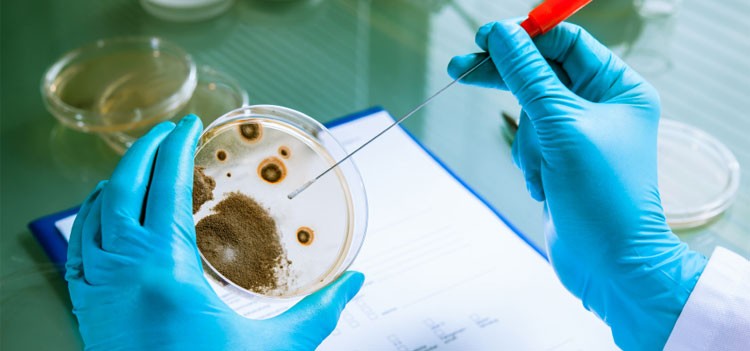Posted by Admin on 23-04-2024 in Shiksha hub
M.Sc. (Microbiology) at AKS University: Introduction, Admission, Registration, Eligibility, Duration, Fees, Syllabus 2024

Introduction about M.Sc. (Microbiology) at AKS University
The Master of Science in Microbiology at AKS University is a rigorous program designed to provide students with a deep understanding of microbial science. This course aims to equip students with the theoretical knowledge and practical skills necessary to thrive in the field of microbiology. The curriculum is tailored to foster research skills and a scientific approach to problem-solving in various biological and ecological challenges.
Admission Process of M.Sc. (Microbiology) at AKS University
1. Application Submission: Prospective students must submit a completed application form along with the necessary documents.
2. Entrance Exam: Applicants may be required to take an entrance exam depending on the university's admission criteria.
3. Interview: Shortlisted candidates will be called for an interview to assess their interest and aptitude for the program.
4. Admission Offer: Successful candidates will receive an admission offer, which they must accept within the stipulated timeframe.
Eligibility Criteria of M.Sc. (Microbiology) at AKS University
Bachelor’s Degree: Candidates should have a Bachelor's degree in Microbiology, Biotechnology, or a related field from a recognized university.
Minimum Marks: A minimum aggregate score of 50% (45% for reserved categories) in the qualifying examination is typically required.
Prerequisites: Some foundational knowledge in biological sciences might be necessary, as specified by the university.
Fee Structure of M.Sc. (Microbiology) at AKS University
|
Particulars |
Amount (INR) |
|---|---|
|
Tuition Fees |
50,000 |
|
Laboratory Fees |
10,000 |
|
Registration Fees |
5,000 |
|
Library Fees |
3,000 |
|
Total |
68,000 |
Duration of M.Sc. (Microbiology) at AKS University
The M.Sc. in Microbiology is typically a two-year program, divided into four semesters. Each semester includes theoretical courses, practical lab sessions, and project work to ensure comprehensive learning.
Syllabus of M.Sc. (Microbiology) at AKS University
General Microbiology
Biochemistry
Molecular Biology
Immunology
Microbial Genetics
Environmental and Agricultural Microbiology
Industrial Microbiology
Thesis and Research Work
Scholarship Opportunities in M.Sc. (Microbiology) at AKS University
Merit-based Scholarships: Offered to students who excel academically at the entrance level or during their undergraduate studies.
Need-based Scholarships: Available for economically disadvantaged students.
Research Assistantships: Opportunities may be available for students to work on research projects with stipends.
Career Opportunities after M.Sc. (Microbiology) from AKS University
Research Scientist: Conduct research in labs in universities, private industries, or government agencies.
Clinical Microbiologist: Work in hospitals to identify pathogens that cause diseases.
Quality Control: Positions in pharmaceutical, food, and beverage industries to ensure product safety.
Environmental Microbiologist: Monitor and manage environmental conditions and remediate polluted environments.
FAQs
1. What is the focus of the M.Sc. in Microbiology at AKS University?
Focuses on equipping students with extensive knowledge and practical skills in microbiology.
2. Are there any internship opportunities?
Yes, the program includes mandatory internships to provide real-world experience.
3. What are the lab facilities like?
State-of-the-art laboratories equipped with modern technology and instruments.
4. Can I pursue a Ph.D. after this M.Sc. program?
Yes, the program prepares students for further research and doctoral studies.
5. Is there an online application form?
Yes, candidates can apply online through the university’s official website.
6. What is the student-to-faculty ratio in this program?
The program maintains a low student-to-faculty ratio to ensure personalized attention.
7. Are there opportunities for collaborative research?
Yes, the university encourages collaborative research projects.
8. What kind of support does the university provide for job placement?
The university has a dedicated placement cell that offers training and support for securing employment.
9. What are the typical entry-level jobs?
Graduates typically enter roles as lab technicians, research assistants, or quality control analysts.
10. Is there financial aid available for international students?
International students are eligible for scholarships and aid on a competitive basis.